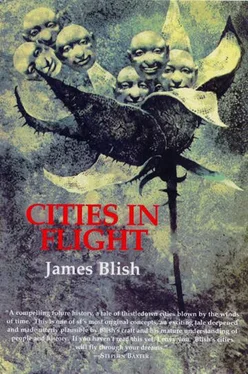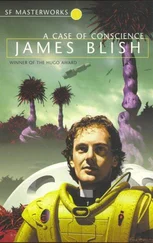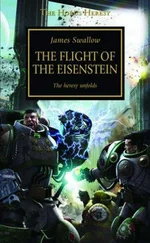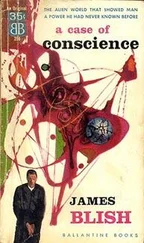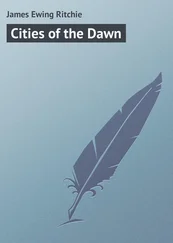“Well, give me a report when you can. If necessary, we can expand.” (Is it worth it?)
“I’ll give you the report this week.” (Yes!)
And that was how the Bridge had been born, though nobody had known it then, not even Wagoner. The senators who had investigated the Bridge still didn’t know it. MaoHinery’s staff at the FBI evidently had been unable to penetrate the jargon on their recording of that conversation far enough to connect the conversation with the Bridge; otherwise MacHinery would have given the transcript to the investigators. MacHinery did not exactly love Wagoner; he had been unable thus far to find any handle by which he might grasp and use the Alaskan senator.
All well and good.
And yet the investigators had come perilously close, just once. They had subpoenaed Guiseppi Corsi for the preliminary questioning.
Committee Counsel: Now then, Dr. Corsi, according to our records, your last interview with Senator Wagoner was in the winter of 2013. Did you discuss the Jupiter Project with him at that time?
Corsi: How could I have? It didn’t exist then.
Counsel: But was it mentioned to you in any way? Did Senator Wagoner say anything about plans to start such a project? Corsi: No.
Counsel: You didn’t yourself suggest it to Senator Wagoner?
Corsi: Certainly not. It was a total surprise to me, when it was announced afterwards.
Counsel: But I suppose you know what it is.
Corsi: I know only what the general public has been told. We’re building a Bridge on Jupiter. It’s very costly and ambitious. What it’s for is a secret. That’s all.
Counsel: You’re sure you don’t know what it’s for?
Corsi: For research.
Counsel: Yes, but research for what? Surely you have some clues. Corsi: I don’t have any clues, and Senator Wagoner didn’t give me any. The only facts I have are those I read in the press. Naturally I have some conjectures. But all I know is what is indicated, or hinted at, in the official announcements. Those seem to convey the impression that the Bridge is for weapons research.
Counsel: But you think that maybe it isn’t?
Corsi: I—I’m not in a position to discuss government projects about which I know nothing.
Counsel: You could give us your opinion.
Corsi: If you want my opinion as an expert, I’ll have my office go into the subject and let you know later what such an opinion would cost.
Senator Billings: Dr. Corsi, do we understand that you refuse to answer the question? It seems to me that in view of your past record you might be better advised—
Corsi: I haven’t refused an answer, Senator. I make part of my living by consultation. If the government wishes to use me in that capacity, it’s my right to ask to be paid. You have no right to deprive me of my livelihood, or any part of it.
Senator Croft: The government made up its mind about employing you some time back, Dr. Corsi. And rightly, in my opinion.
Corsi: That is the government’s privilege.
Senator Croft: —but you are being questioned now by the Senate of the United States. If you refuse to answer, you may be held in contempt.
Corsi: For refusing to state an opinion?
Counsel: If you will pardon me, Senator Croft, the witness may refuse to offer an opinion—or withhold such an opinion, pending payment. He can be held in contempt only for declining to state the facts as he knows them.
Senator Croft: All right, let’s get some facts, and stop the pussyfooting.
Counsel: Dr. Corsi, was anything said during your last meeting with Senator Wagoner which might have had any bearing on the Jupiter Project?
Corsi: Well, yes. But only negatively. I did counsel him against any such project. Rather emphatically, as I recall.
Counsel: I thought you said that the Bridge hadn’t been mentioned.
Corsi: It hadn’t. Senator Wagoner and I were discussing research methods in general. I told him that I thought research projects of the Bridge’s order of magnitude were no longer fruitful.
Senator Billings: Did you charge Senator Wagoner for that opinion, Dr. Corsi?
Corsi: No, Senator. Sometimes I don’t.
Senator Billings: Perhaps you should have. Wagoner didn’t follow your free advice.
Senator Croft: It looks like he considered the source.
Corsi: There’s nothing compulsory about advice. I gave him my best opinion at the time. What he did with it was up to him.
Counsel: Would you tell us if that is your best opinion now? That
research projects the size of the Bridge are—I believe your phrase was, “no longer fruitful”?
Corsi: That is still my opinion.
Senator Billings: Which you will give us free of charge …?
Corsi: It is the opinion of every scientist I know. You could get it free from those who work for you. I have better sense than to charge fees for common knowledge.
It had been a near thing. Perhaps, Wagoner thought, Corsi had after all remembered the really crucial part of that interview and had decided not to reveal it to the sub-committee. It was more likely, however, that those few words that Corsi had thrown off while standing at the blinded windows of his apartment would not have stuck in his memory as they had stuck in Wagoner’s.
Yet surely Corsi knew, at least in part, what the Bridge was for. He must have remembered the part of that conversation which dealt with gravity. By now he would have reasoned his way from those words all the difficult way to the Bridge—after all, the Bridge was not a difficult object for an understanding like Corsi’s.
But he had said nothing about it. That had been a crucial silence.
Wagoner wondered if it would ever be possible for him to show his gratitude to the ageing physicist. Not now. Possibly never. The pain and the puzzlement in Corsi’s mind stood forth in what he had said, even through the coldness of the official transcript. Wagoner badly wanted to assuage both. But he couldn’t. He could only hope that Corsi would see it whole, and understand it whole, when the time came.
The page turned on Corsi. Now there was another question which had to be answered. Was there a single hint, anywhere in the sixteen hundred mimeographed pages of the report, that the Bridge was incomplete without what was going on at Jno. Pfitzner & Sons? …
No, there was not. Wagoner let the report fall, with a sigh of relief of which he was hardly conscious. That was that.
He filed the report, and reached into his “In” basket for the dossier on Paige Russell, Colonel, Army Space Corps, which had come in from the Pfitzner plant only a week ago. He was tired, and he did not want to perform an act of judgment on another man for the rest of his life—but he had asked for the job, and now he had to work at it.
Bliss Wagoner had not been cut out to be a general. As a god he was even more inept.
The original phenomena which the soul-hypothesis attempted to explain still remain. Homo sapiens does have some differences from other animal species. But when his biological distinctions and their consequences are clearly described, man’s ‘morality,’ his ‘soul,’ and his ‘immortality’ all become accessible to a purely naturalistic formulation and understanding, … Man’s ‘immortality’ (in so far as it differs from the immortality of the germ plasm of any other animal species) consists in his time-transcending inter-individually shared values, symbol-systems, languages, and cultures—and in nothing else.
Читать дальше
